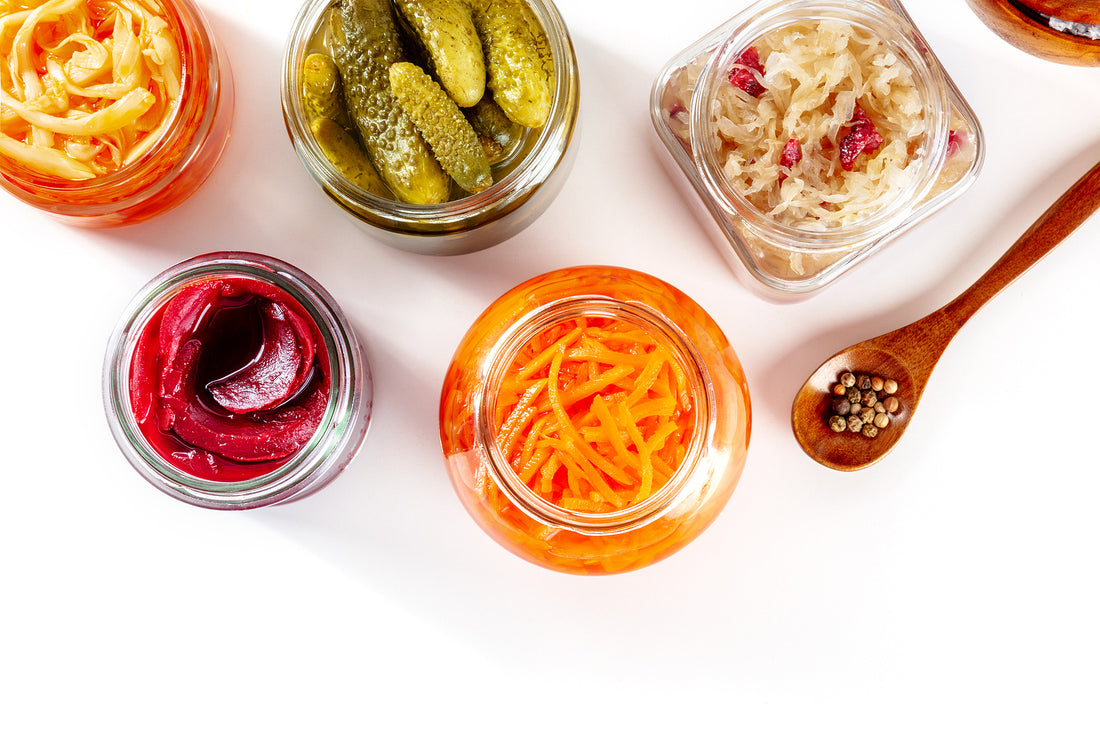Self-care is something that has become a high priority in recent years. New research on the overall dynamic of human health - including mental, emotional, spiritual and physical health continue to change what we know, and what we recommended regarding treatments.
Gut health is something that is currently taking the spotlight, and for good reason. More science is being uncovered that connects the dots between the state of your digestion and the rest of your body’s functioning capabilities... for better or worse.
Part of a healthy gut includes the presence of beneficial bacteria. These tiny guys work night and day to help break up food particles, repair cell walls, and other things that are still being discovered.
And this is where probiotics and prebiotics come in. You’ve heard the names, but what’s the difference other than one letter of the alphabet?
This article will help you conquer any confusion you have on the two. It’ll also help give you specific ways to add these into your life for a better, healthier you.
Prebiotics
Pre means "before". Prebiotics are nutrient compounds that help feed the microorganisms in your gut and act as a precursor in your digestive process. As these compounds are broken down, they produce short-chain fatty acids that are released into your bloodstream. These travel to other organs and support them in a number of ways (1).
What are some examples of prebiotics? Because prebiotics are nutrients, you can only find them in certain foods. Some of the best prebiotic foods to eat are:
- Vegetables like onions, leeks, chicory, garlic, and Jerusalem artichoke
- Beans like red kidney, chickpeas, and lentils
- Fruits like grapes, bananas, great fruit, and watermelon
- Oats and barley
- Nuts like almonds, flax seeds, and pistachios
You may notice that many of the foods in these categories are high in fiber. That's because fiber is a key element in prebiotic activity (2).
Probiotics
So if probiotics help pave the way for optimal digestive health, what do probiotics do?
The word probiotic means "for Life ''. Over time, this term has been used to describe when substances are produced from one organism to jump start the growth in others.
These live microorganisms help you by bringing balance to your body. There are numerous families, or strains of probiotics in the world. And different strains do different things. Some research has observed that they help keep the gut lining tightly connected, preventing foreign substances from crossing cell barriers. This is especially important for your immune system (3).
What are some examples of probiotics? In order to get these “good bugs” into your system, the key is to look for fermentation. Foods that have undergone a fermentation process will naturally contain these helpful probiotics.
Some of the best foods to get probiotics from are (4):
- Sauerkraut
- Yogurt
- Kefir
- Pickles
- Sourdough
- Miso
- Kimchi
- Tempeh
- Kombucha
- Some cheeses
Many of these fermented foods will have a sour or bitter taste. If you don’t like the flavor, adding other items may help balance the dish.
Do You Need Both?
Ok, so you know you need probiotics. But do you need probiotics and prebiotics? The question may seem silly to you, but you’d be surprised how many people are hesitant to make new changes. Questions arise, and it’s normal to be skeptical.
The short answer is yes, you need both prebiotics and probiotics in order to fully reap the benefits of these microorganisms. Not only that, but getting postbiotics can give your health that extra boost it needs.
Foods and Supplements
Here at KaraMD, we always suggest you get your nutrition from food first, then supplements. Aim to include foods high in fibrous prebiotics, adding probiotic foods as well. Look for organic choices, and if locally grown produce is available, all the better.
Unfortunately, much of today’s fruits and vegetables don’t have the nutrients they once did. Decades of chemicals, over-producing, and wasteful lifestyles have depleted the soil. Because of this, it may be necessary to supplement your probiotic needs.
There are so many options on the market, but not all address the specific strains your gut needs. Our GutBio Align takes the guesswork out by combining all three stages of microorganism: pre-, pro-, and post-biotic.
Wrap Up
Unless you’ve been living under a rock, you’ve probably seen the explosion in probiotic awareness. From scientists to store owners, sharing the many benefits of these microorganisms has become a top health priority.
Prebiotics often come from fibrous fruits, vegetables, beans and grains to help stimulate other microorganisms in your digestive tract. Probiotics are billions of helpful bacteria that aid in so many processes in your body - not just your gut. There are many fermented foods that provide natural sources of probiotics. But often the average American diet lacks a consistent intake of these foods, so supplementing may be necessary.
Have you added a multi-functioning pre and probiotic supplement to your life? If not, check out ours here (5).
References & Disclaimers
(1) https://www.ncbi.nlm.nih.gov/pmc/articles/PMC6463098/
(2) https://www.medicalnewstoday.com/articles/323214
(3) www.ncbi.nlm.nih.gov/pmc/articles/PMC4045285/
(4) https://www.health.harvard.edu/staying-healthy/how-to-get-more-probiotics
(5) https://www.karamd.com/products/gutbio-align
✝✝This noted statement is based on independent research and is not necessarily the opinion of the author
